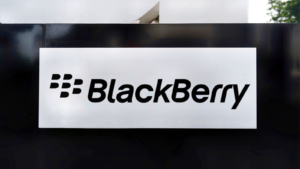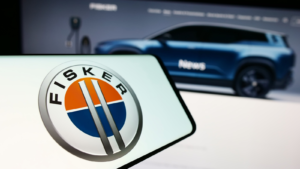
Meme stocks looked to be on the comeback trail in May of this year after retail trader Keith Gill, known online as “Roaring Kitty,” made a triumphant return to social media after a three-year hiatus. By posting only a few cryptic memes heralding his return, Gill managed to more than double the share prices of popular undervalued meme stocks such as GameStop (NYSE:GME) and AMC Entertainment (NYSE:AMC).
Other undervalued meme stocks, such as headphone maker Koss (NASDAQ:KOSS) saw their stocks rise more than 20% on news of Gill’s return. Meme stocks are defined as shares of a company that have gained viral popularity due to heightened social media attention. They tend to be stocks of once-dominant companies that have fallen on hard times and whose shares are heavily shorted on Wall Street.
As is typically the case, the meme stock rally of late May did not last long and most of the companies involved saw their share prices fall back to earth throughout June. The pullback has left many meme stocks deep in the red and looking cheap at current levels. Here are the seven most undervalued meme stocks to buy in July 2024.
GameStop (GME)

We’ll start with GameStop. Setting aside the return of Roaring Kitty, the brick-and-mortar video game retailer continues to report abysmal financial results that are weighing on its share price. Results were particularly bad for this year’s first quarter, which management issued along with plans to sell additional GME stock, further diluting the holdings of existing shareholders.
The end result is that GameStop stock has declined 50% from the peak it reached in mid-May this year when Roaring Kitty resurfaced. The company’s shares are 70% below the all-time high they reached in January 2021 during the original meme stock craze. GameStop’s sales in the first three months of this year totaled $881.8 million, down 29% from $1.237
billion a year ago. News of the stock dilution appears to have dampened enthusiasm over Roaring Kitty’s return. That and a class-action lawsuit alleging a classic pump-and-dump.
Trump Media & Technology Group (DJT)

GameStop’s earnings look sterling when compared to the finances of Trump Media & Technology Group (NASDAQ:DJT). The company, which runs the Truth Social platform that is essentially a clone of Twitter, reported a net loss for this year’s first quarter of $327.6 million on less than $1 million in revenue. Consequently, it’s been a bumpy ride for DJT stock in recent months.
The share price has fallen 55% from a peak reached in March of this year shortly after the company went public through a special purpose acquisition company (SPAC). DJT stock also fell 15% after former President Donald Trump was found guilty on 34 felony counts related to falsifying business documents in a criminal hush money case. More recently, the stock has fallen 30% in the last month.
While the share price decline is disappointing, it has certainly made DJT stock cheaper to buy for investors with an appetite for risk.
Tilray Brands (TLRY)

Cannabis producer Tilray Brands (NASDAQ:TLRY) has also been getting cheaper as its finances deteriorate. The company most recently reported a quarterly loss of $105 million and lowered its forward guidance as its sales continue to decline. The result is that TLRY stock has fallen 20% this year. Over five years, the stock has declined 96% and now trades deep down on the penny stock league tables.
Tilray said that it expects earnings of only $60 million to $63 million for its entire 2024 financial year. The new guidance is down from earlier estimates of $68 million to $78 million in earnings. Management said they no longer expect positive free cash flow this financial year. The deteriorating situation has raised concerns about Tilray’s ability to continue operating. Still, TLRY stock is not available to buy for less than $2 a share.
BlackBerry (BB)

BlackBerry (NYSE:BB) is also trading in the penny stock range having decreased 30% year to date. As with the other undervalued meme stocks, BlackBerry’s share price is declining as the company reports woefully bad financial results. In this year’s first quarter, BlackBerry’s net loss grew by nearly 300% as its sales continued to deteriorate. The former smartphone maker reported a Q1 loss of $42 million, which was 282% greater than a net loss of $11 million a year earlier.
Revenue at BlackBerry totaled $144 million in Q1, down 61% from $373 million a year ago.
The poor results come as BlackBerry prepares to divide its cybersecurity business and its
Internet of Things (IoT) division. BlackBerry is also cutting costs as its financial situation worsens. Earlier this year, the company eliminated 200 jobs and closed six of its 36 global offices. It remains to be seen if the measures will be enough to right the ship.
BB stock has declined 50% in the last 12 months.
Fisker (FSRNQ)

Now for a bankruptcy filing. Electric vehicle start-up Fisker (OTC:FSRNQ) has filed for bankruptcy protection from its creditors and plans to sell its assets. The company’s stock now trades for less than two cents on the over-the-counter market. But that hasn’t stopped retail investors from bidding up this troubled meme stock. Fisker stock continues to pop occasionally as investors nibble at it, though the share price is down 99% on the year.
Fisker is the latest in a string of electric vehicle companies to seek bankruptcy protection from creditors, following Lordstown Motors. Analysts say the businesses are failing as the electric vehicle stock bubble bursts and consumers move away from battery-powered autos in favor of gas-electric hybrid models. Fisker made more than 10,000 vehicles in 2023 but delivered only about 4,700. This is the second time Fisker has filed for Chapter 11 bankruptcy. The company now plans to sell its assets and restructure its debt.
Canopy Growth (CGC)

Another cannabis stock. This one is Canopy Growth Corp. (NASDAQ:CGC). On the surface, things look to be improving for this company’s stock. The share price has risen nearly 30% this year and is trading above $6. But don’t be fooled. The gains and current share price are due to Canopy Growth executing a reverse stock split. Reverse stock splits are the opposite of regular stock splits. Rather than reduce the share price, they raise it by consolidating the stock.
Reverse stock splits are seen by markets as an act of desperation by companies that are trying to artificially boost their share price, often to avoid being delisted from an exchange. In the case of Canopy Growth, the company was in danger of being delisted by the Nasdaq exchange as its share price had been trading below $1. In response, the company consolidated its shares on a one-for-10 basis. Over the last five years, CGC stock has fallen 98% amid speculation that the company will file for bankruptcy.
AMC Entertainment (AMC)

We’ll end with another leading meme stock, AMC Entertainment. The largest U.S. movie theater chain saw its share price more than double when Roaring Kitty resurfaced. Unfortunately, the stock has since dropped 20% from a peak reached in mid-May and is on the cusp of falling into penny stock territory. In the last 12 months, AMC stock has decreased 85%, making the shares cheap if not undervalued.
AMC Entertainment continues to struggle with a decline in moviegoers that began during the COVID-19 crisis and a big debt load that it took on during the pandemic when its theaters were closed or forced to operate at reduced capacity. At the start of this year, AMC had $8.6 billion of long-term debt, up from $5.2 billion before the pandemic. The company did manage to narrowly beat analysts’ forecasts with its Q1 print. So there might still be hope for the company and its shareholders.
On the date of publication, Joel Baglole did not have (either directly or indirectly) any positions in the securities mentioned in this article. The opinions expressed in this article are those of the writer, subject to the InvestorPlace.com Publishing Guidelines.





